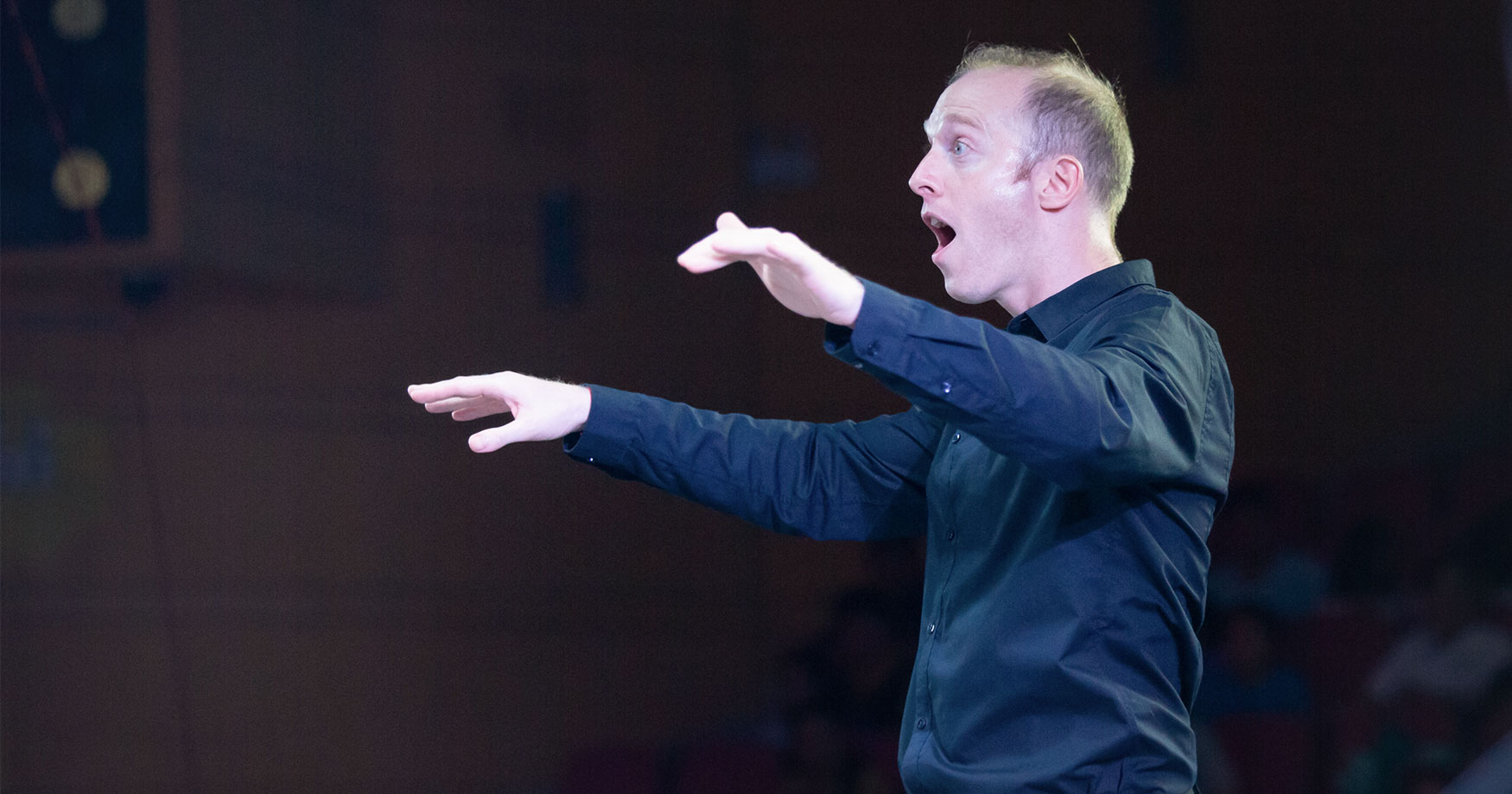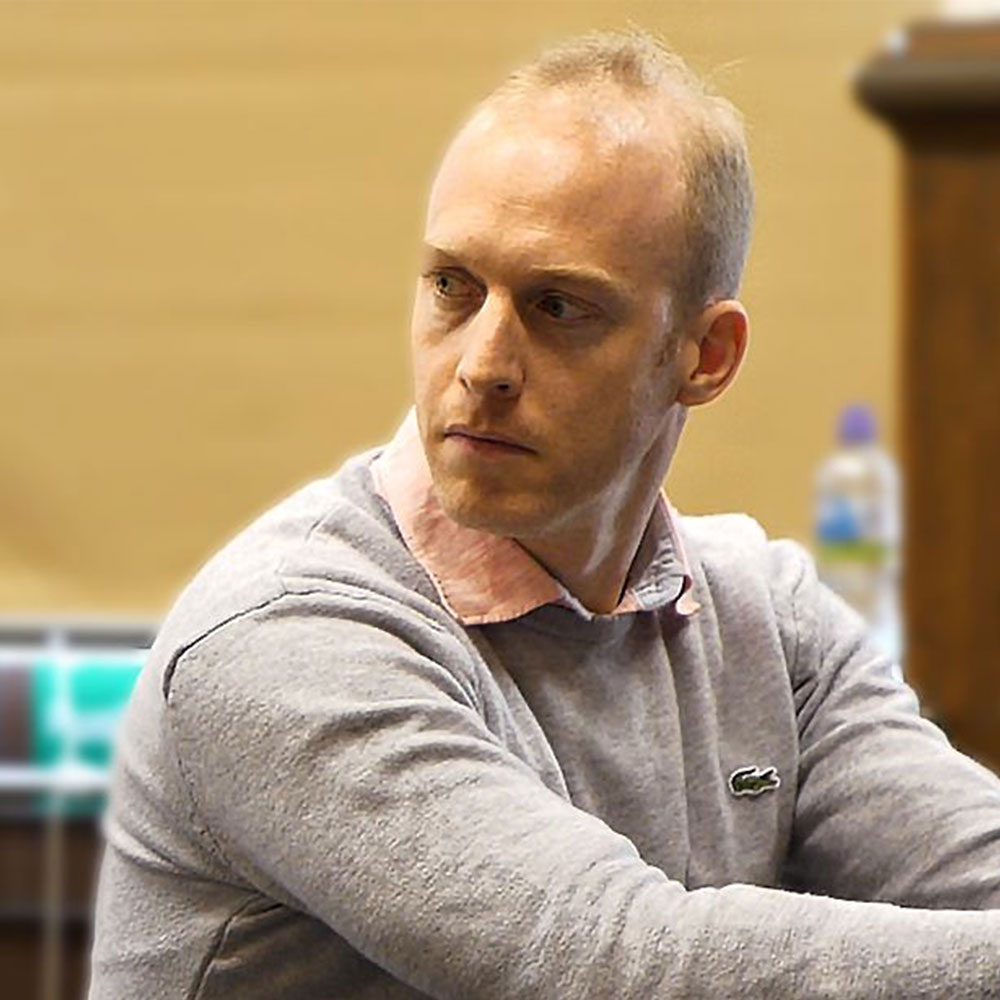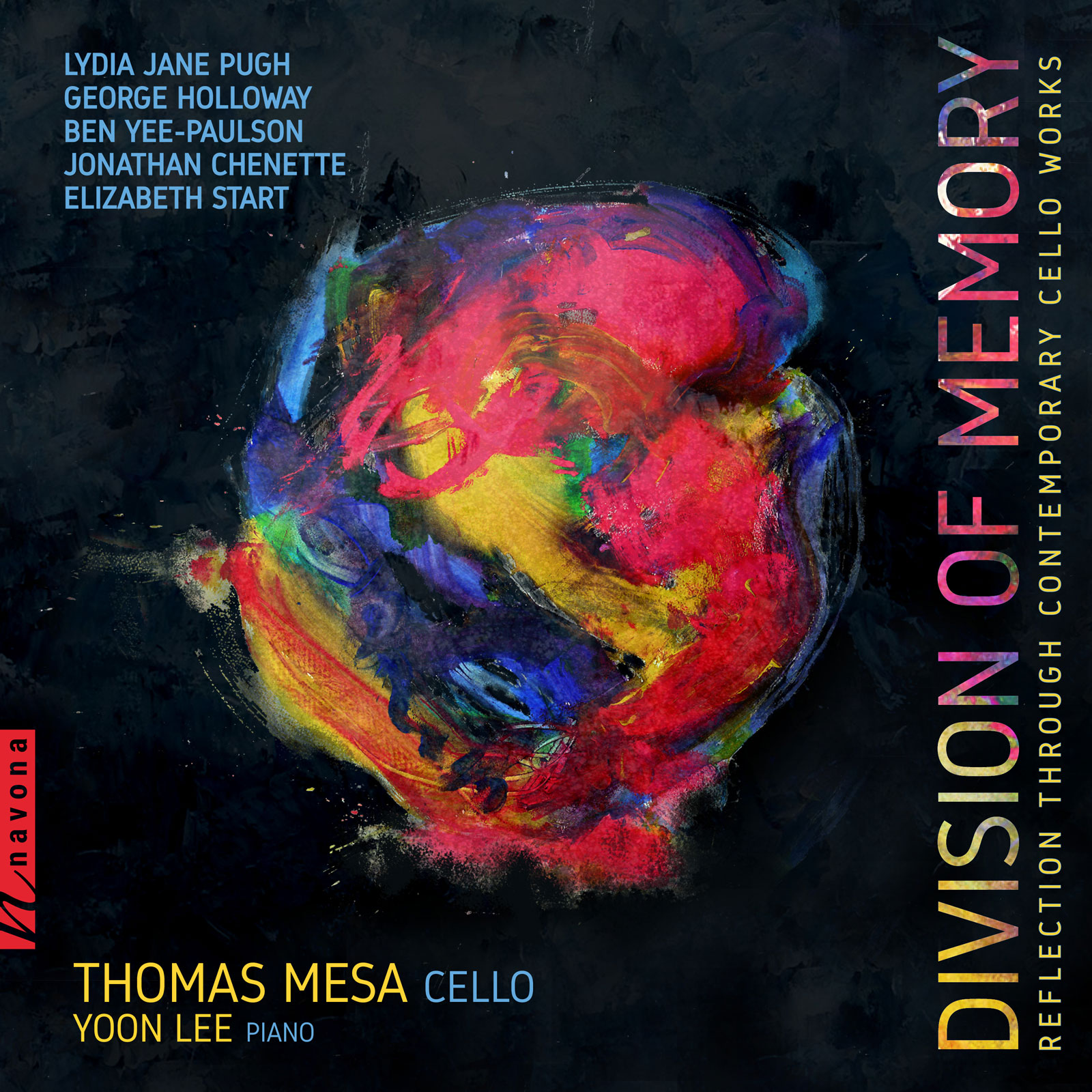
A comprehensive collection featuring a variety of sound production methods displayed on the cello by Thomas Mesa, DIVISION OF MEMORY from Navona Records delivers a wide range of works, each with their own compositional personality and a repertoire dedicated to the multifaceted soundscape of the cello. George Holloway’s Novella proceeds organically from start to finish, mirroring the dramatic motives and moods of a true story written by the composer.
Today, George is our featured artist in “The Inside Story,” a blog series exploring the inner workings and personalities of our artists. Read on to learn about the deep inspiration he discovered in a solitary Beijing winter, and his fascination with traditional Chinese string instruments…
When did you realize that you wanted to be an artist?
As soon as I began studying my first instrument, the cornet, around nine years of age, I spontaneously created pieces. I tried to notate them, and I took these pieces to my teacher and “performed” them in front of the other students. When I began studying the piano shortly after, I did the same thing. I never questioned it or thought anything of it: it just seemed the obvious thing to do.
At the age of eleven I joined a youth orchestra, and in the first term we premiered a piece by one of the teachers—the Elements Suite by Andrew Tyrell, for what it’s worth—so my first experience of ensemble performance was itself connected to projecting the living creativity of a composer who is alive.
The true epiphany came when, around the age of fourteen, a friend lent me the score and recording of Alban Berg’s Wozzeck. I went home and listened to the opera, following along with the score. When I got to the last bar, I turned the page and couldn’t believe there was no more music to come. The way the opera ends, as it were in medias res, was baffling for me. I was fascinated that music could be like that. There was no looking back from that moment.
If you could spend creative time anywhere in the world, where would it be?
When I compose, I need to be completely free of other sources of stress and distraction, a circumstance which — as a university professor — is often rather difficult to achieve. Throughout my life, I’ve found a few places to be extremely relaxing and creatively stimulating: the rugged west coast of Wales, the pine forests and lakes of Lithuania, the island of Sifnos in the Cyclades, and the mountainous interior of Taiwan. Much more important, however, is one’s inner state of mind. As long as I can achieve the requisite focus, I can compose anywhere, which is handy, as it is rarely feasible to whisk myself off to remote climes. A few years ago, when I was studying conducting in Beijing, for two years running I was almost completely alone in the dormitory during the winter break. Beijing in winter is exhilaratingly bleak, and I loved exploring what remains of the ancient parts of the city in that bitingly cold weather. The quiet of the dormitory and solitary excursions to different ancient gardens and lakes helped me to finish — during those two Winters — two quite significant works: my second guitar sonata, and my orchestral piece Earthly Branches.
What does this album mean to you personally?
I still intend Novella to be a multi-movement work, hence the addition of the parenthesis in the title. Further chapters remain to be composed. It records for me memories of my first few years in Tianjin, China. In an extremely short space of time, two important things happened to me: my father passed away, and I got my first full-time job. The former of these events still counts as the most significant moment in my life so far, while by stark contrast the latter of these happened to be a dream come true, in that I had a job teaching composition in a music conservatory. Novella is my most personal piece, in the sense that the trajectory of the music embodies an emotional journey, the specific details of which only I know, but that I hope listeners can sense inchoately through the music.
What was your favorite musical moment on the album?
I’m totally in love with the sound-world that Thomas and Yoon create in my piece, and I’m particularly proud of the expansive central arc of music which builds over a number of minutes to a visceral climax, before entering a nocturnal coda. It’s one of the most organic passages of music I’ve composed (uncharacteristically so, but also deliberately so). Apart from my piece, I’m impressed by the cello writing in the pieces by all the other four composers featured on DIVISION OF MEMORY. If I had to do something so controversial as to choose a highlight, it would be the marvellous dance-like feel of Lydia Jane Pugh’s Carolina’s Jig, perhaps because it is a world away from the dark intensity of my own Novella.
If you could instantly have expertise performing one instrument, what instrument would that be?
My first thought was the violin, and then — of course — the cello! The violin seems an obvious choice, as so much of Western music revolves around this versatile and expressive instrument. I wanted to learn the violin when I was very young, before subsequently gravitating towards the cornet and french horn. Upon further reflection, however, I would love to be able to play the erhu, which is often compared to the violin or the viola, but which inhabits its own world of expression and embellishment that is nothing like that of Western string instruments. It is indeed a nuanced and fascinating world, and the zhonghu, which is, as it were, the alto equivalent of the erhu, has a deep parlando tone which I find bewitching. The zhonghu has virtually no solo music written for it, which is why in my most recent piece — Moon — I especially included a virtuosic zhonghu part. If I could instantly master the zhonghu, it would have the added advantage that I would not have to worry about dealing with complaints from the zhonghu player when Moon is eventually performed!
If you could make a living at any job in the world, what would that job be?
As well as composition, I am also very interested in the art of conducting, and I would love to be able to become a good enough conductor that I could support myself through that alone. At 38 years of age, perhaps that ship has sailed now. In the past I have run my own children’s choir, the Holloway Children’s Choir, which proved extremely successful. The love and devotion I received from the children and their parents showed me that this was something which I could aspire to be very good at. Conducting a children’s choir — and doing it well — is a considerably difficult thing to do, but as Kodaly counselled his fellow composers, it is one of the most important forms of musical education, and a crucial aspect of ensuring that we have audiences in the future who appreciate and treasure our music.
Explore George’s Latest Release
DIVISION OF MEMORY
DIVISION OF MEMORY is available now from Navona Records. Click here to visit the catalog page and explore this album.

George Holloway is currently an assistant professor of composition in the department of ethnomusicology in Nanhua University, Taiwan. He was formerly Dean of Composition at Tianjin Conservatory of Music in China. In this role, George was the first foreign head of department in any Chinese conservatory. George has also taught at the Central Conservatory of Music in Beijing and the University of Southampton.

